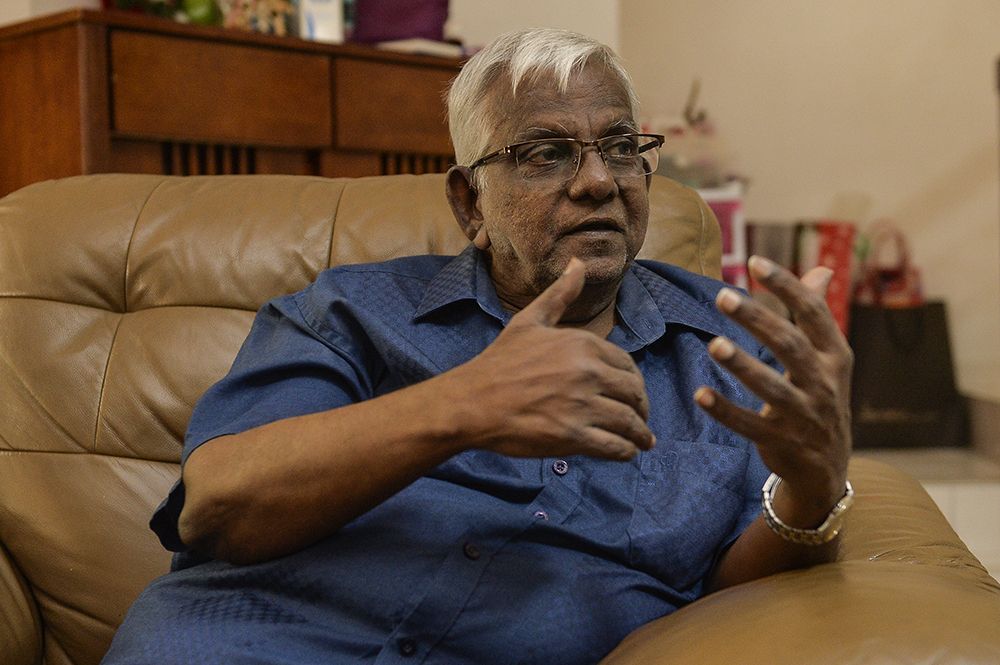KUALA LUMPUR, April 4 — Over two decades ago, a dark cloud hung over Albert Gunaratnam’s life when he experienced a severe heart attack that left him gasping for breath.
At that time, doctors gave him about six months to live if he couldn’t find a matching heart.
Now 71, Albert is the longest surviving heart transplant patient in Malaysia after he received a new heart on April 10, 1998.
His transplant surgery was the second performed in the country at the National Heart Institute (IJN).
Twenty one years on, Albert still remains deeply grateful to the donor who gave him a new lease of life.
Without it, he would have lost the chance to see his two daughters grow up, walk them down the aisle and play with his four grandchildren.
Recalling back the episode, the former distribution manager at a Shah Alam-based Japanese company said he had a relatively busy and often stressful working schedule prior to the heart attack.
“I used to stay at work until 10pm or sometimes 11pm, but I had no idea that the stress level could affect my heart in such a way,” he said.
The heart attack
Albert still remembers the day he had the heart attack like it was yesterday.
On February 17, 1996, he woke up early with pain in his arm and chest.
He said he tried to walk around the room and get back to sleep, hoping the discomfort would go away, but it was instead aggravated.
At 7am, when his wife was about to take their daughters to a clinic, Albert decided to follow them for a check-up.
At the clinic, the doctor immediately told him he was having a heart attack and was rushed to a private hospital, where he learnt that the attack had damaged major muscles of his heart.
After several screenings, doctors at Assunta Hospital told him that his only chance for survival would be a heart transplant.
“They gave me enough medicine to keep my heart pumping for about six months and advised me to go to India for higher chance of finding a transplant,” he said.
In the pursuit of finding a new heart, Albert together with his wife flew to Chennai and it was there he found out that his chances of getting a heart was slim as his blood group was the rare – AB positive.
Albert said he was told by the doctors that only five per cent of the world’s population had that blood group.
“So, I returned home and registered myself as a recipient at IJN,” he said.
“I left it to the hands of God.”
At that time, Malaysia had already achieved a major milestone when IJN successfully carried out its first heart transplant on Dec 18, 1997, giving Albert some hope.
Life-changing phone call
On April 9, Albert received a call from IJN and was informed that a potential heart had been found.
The donor was a 22-year-old ex-state athlete who had been in a motorcycle accident in Ipoh and was brain-dead.
Miraculously, his blood type was AB positive and Albert was the only compatible recipient on the waiting list.
“The mother told me that the young boy had read about the first heart transplant operation prior to the accident, and had said if anything should happen to him, all his organs should be donated,” he said.
Despite objections from other relatives, Albert said the young man’s mother allowed her son’s heart and other organs to be harvested for transplant.
“He saved eight lives, including mine,” he said.
Albert said he was wheeled into the operation room around midnight on April 10 for a three-hour surgery.
“It was smooth and the road to recovery was very quick for me despite having diabetes,” he added.
Two months later, he requested for early retirement and left his job to enjoy life to the fullest with his wife and children.
“I didn’t want to lose the precious heart I got by going to work and stressing myself again,” he said.
Although he used to be an active man in the past few years, Albert now spends most of his time with his family at home.
He watches his food, takes his medication thoroughly and never misses the once-in-three-months medical check-up at IJN.






















